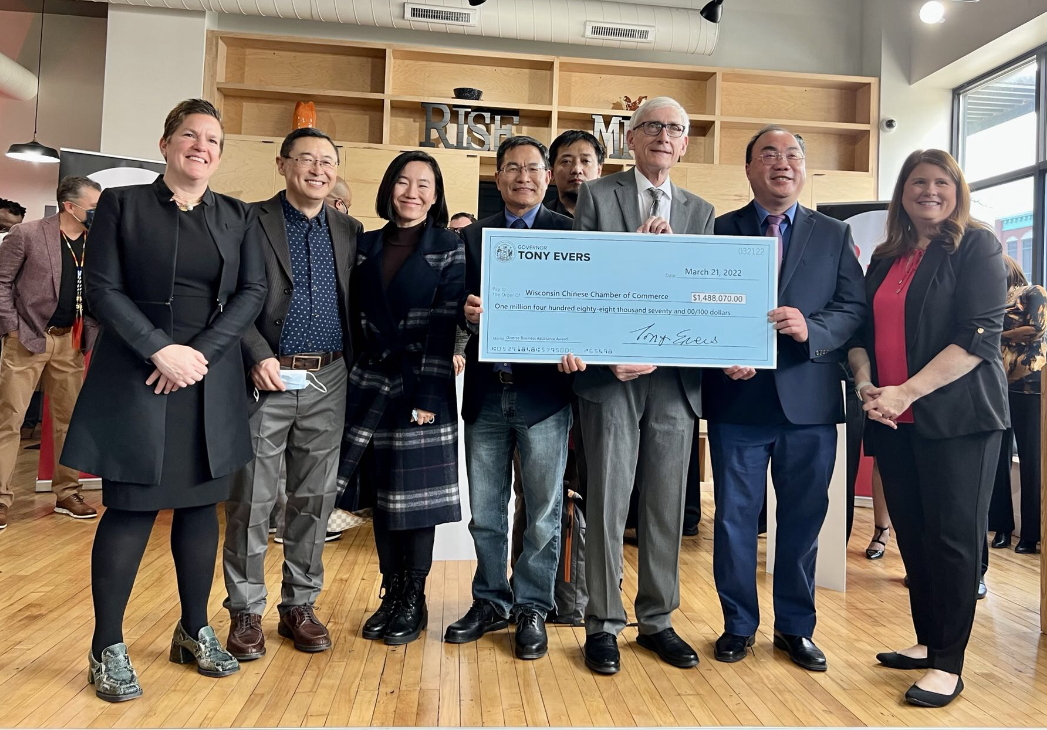Supporting Vibrant Downtown Districts
Through the Connect Communities and Wisconsin Main Street Programs, dozens of Wisconsin communities are revitalizing their downtown and historic commercial districts. With initiatives such as creative reuse of buildings, streetscape improvements, new tenant recruitment and proactive marketing and promotions, communities are bringing back foot traffic and breathing new life into these districts with historic appeal.
Although neither program carries grant funding, both offer communities the benefit of technical assistance, networking and connection to resources through the Wisconsin Economic Development Corporation (WEDC) community and downtown development staff.
The Wisconsin Main Street Program provides communities with an extensive package of services, including training an executive director for the local Main Street organization, assisting with a downtown market analysis, facilitating vision planning and work plan sessions, small business consultations, hands-on design assistance, and advanced training on specific topics such as marketing, business development, volunteer development and historic preservation. Participants in the program developed and executed initiatives that created 526 jobs and 172 new businesses in the 2013 fiscal year alone. In addition, Wisconsin’s Main Street Communities saw more than $35 million in private building investment and organized events that drew more than 800,000 people to downtown districts during the year.
The Wisconsin Main Street Program, affiliated with the National Trust for Historic Preservation’s National Main Street Center, has existed since 1987 and now includes 36 active Wisconsin communities. The program requires communities to have a full-time executive director working on downtown development, and also carries requirements for monthly reporting and minimum budget. Given the prestige and the value of the program, the application process is quite rigorous.
To lower the barrier and enable more communities to benefit from services similar to those provided through Wisconsin’s Main Street Program, in 2012, WEDC created the Connect Communities Program. This program’s requirements are simpler: each community must have established committee or organization that focuses on downtown/urban commercial district issues; pay a $200 fee; file a simple report twice a year; and commit to a majority of the training opportunities offered as part of the program.
A second crop of 22 Connect Communities was recently announced. They join 18 communities continuing in the program from its first year. That initial group is already reporting positive outcomes such as improved streetscapes, redeveloped properties, lower real-estate vacancy rates, and recruitment of new businesses into downtown areas.
After focusing on downtown development for one year with Connect Communities, one member of the inaugural class, the City of La Crosse, applied for and received the Main Street designation this year. “We are very excited and honored by this recognition,” said La Crosse Mayor Tim Kabat. The city’s local downtown organization, Downtown Mainstreet Inc., along with community partners “have helped to create a downtown that we are all proud of,” he said, “and we look forward to collaborating with WEDC and the state of Wisconsin to raise historic downtown La Crosse to new heights.”
This newest Main Street community, La Crosse, will be hosting a gathering for representatives of Main Street communities from Wisconsin, Minnesota, Iowa, and Illinois Oct. 21-23. Representatives from Connect Communities member communities are also welcome to attend the Upper Mississippi Main Street Conference.
For more information about Main Street or Connect Communities, go to /community-development/programs/ or contact Darrin Wasniewski at darrin.wasniewski@wedc.org or 608.210.6854.
(August 2014)







